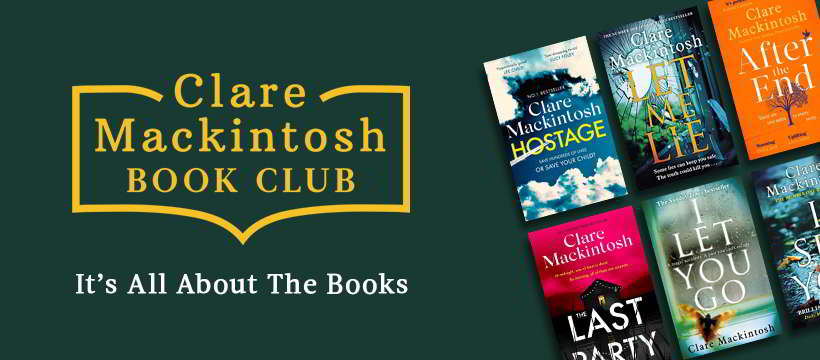Please find the discussion questions for our April 2023 pick, Lessons in Chemistry by Bonnie Garmus below! I’d love to hear what you thought of the book.
- You can the ongoing book club discussions in the Facebook group here.
- You can order your copy of the book here or you can buy all three of our quarter 2 book club picks (at a discounted rate!) here.
QUESTION 1
Lessons in Chemistry has enjoyed huge success since it come out in hardback last year. Did you know about its popularity when you bought or started reading it? Do you think being aware that a book has been well-received influences your reading experience?
QUESTION 2
What is your overall impression of Elizabeth as a protagonist? Why was chemistry the right career choice for her?
QUESTION 3
What did you think about the eventual romance between Elizabeth and Calvin? Why were they a good fit?
QUESTION 4
The story features a great supporting cast from the neighbor Harriet (who eventually becomes like family) to Elizabeth’s producer Walter (who becomes her best friend). Who was your favorite supporting character and why?
QUESTION 5
Why do you think the author decided to include the viewpoint of their dog, Six-Thirty? Did you like the dog as a character? How do you think their inclusion added to the story?
QUESTION 6
Were you surprised by Calvin’s death? Why do you think Bonnie Garmus decided to kill him off? What impact does his death have on the rest of Elizabeth’s story?
QUESTION 7
Elizabeth is so adamant about living life (and raising her child) on her own terms. How does this help her and how does it makes things more difficult?
QUESTION 8
Why did Elizabeth agree to host the cooking show? Why did the show resonate with women across the country?
QUESTION 9
This book has some truly brilliant and memorable moments. Did you have any favourites?
QUESTION 10
Lessons in Chemistry will be coming to Apple TV+ later this year. What do you think of the casting? Who would have been your ideal Elizabeth?

Q9- Although these are all quotes rather than moments, they are ones that I marked with slips of paper as I was reading. As you can see, one of them is from Six-Thirty (a character whose point of view I did enjoy seeing in the story -Q5- maybe because I do have conversations with my dog, and occasionally express her side to some family and friends.
…She’d had a baby and would be raising it to adulthood…From across the room, Madeline announced it was feeding time. / “But you just ate,” Elizabeth reminded her. / “WELL, I DON’T REMEMBER,” Madeline screamed back, formally initiating the least fun game in the world: Guess What I Want Now.” (pp 131-132)
…”You just can’t let Mad do whatever she wants.” “You’re absolutely right Harriet,” Elizabeth said without taking her eyes off three test tubes. “You’ll notice I’ve moved the knives.” “Elizabeth,” Harriet implored, “You have to watch her. I found her crawling into the washing machine yesterday.” “Don’t worry,” Elizabeth said, still staring at the test tubes, “I never start a load without checking first.” (pp.156-157)
“I wish you could talk to her,” Harriet told him more than once. “She’d listen to you.” Six-Thirty looked back at her, exhaling. Elizabeth did listen to him –obviously communication was not limited to conversation. Still, he sensed that most people did not listen to their dogs. This was called ignoring. Or wait, no. Ignorance. He’d just learned that one. By the way and not to brag, but his word count was up to 497. (p.158)
“We have an opening. Two seat. It would work for us to have you back as soon as possible. Next week at the latest.”
“What? No, I’m–”
“Tired? Busy? Probably going to argue you don’t have time.”
“Because I don’t”
Who does? Being an adult is overrated, don’t you think? Just as you solve one problem, ten more pop up.”
…”Everyday she found parenthood like taking a test for which she had not studied. The questions were daunting and there wasn’t nearly enough multiple choice. …” (pp160-161)
…”Actually, when you think about it, rowing is almost exactly like raising kids. Both require patience, endurance, strength, and commitment. And neither allow us to see where we’re going — only where we’ve been. I find that very reassuring, don’t you? Except for the flip-outs–of course, I could really do with fewer flip-outs.”
“You mean flips.”
“Flip-outs,” he insisted, getting in his car. “Yesterday one of my kids hit the other with a shovel.”
(p. 166)